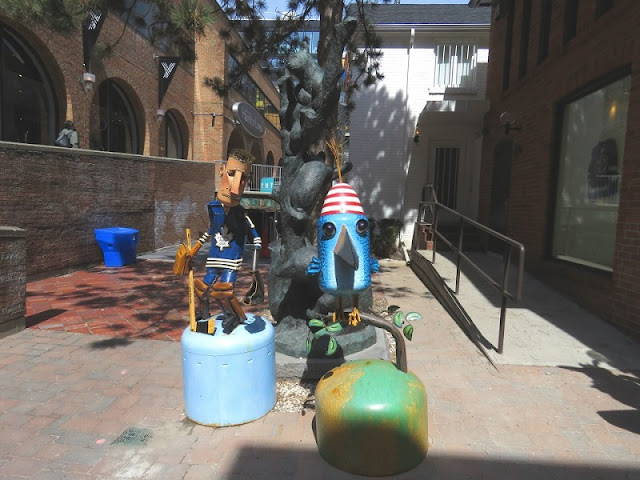Exploration Team
By Murray Leinster
The nearer moon went by overhead. It was jagged and irregular in shape, and was probably a captured asteroid. Huyghens has seen it often enough, so he did not go out of his quarters to watch it hurtle across the sky, with seemingly the speed of an atmosphere-flier, occulting the stars as it went. Instead, he sweated over paper work, which should have been odd because he was technically a felon and all his labors on Loren Two felonious. It was odd, too, for a man to do paper work in a room with steel shutters and a huge bald eagle – untethered – dozing on a three-inch perch set in the wall. But paper work was not Huyghens' real task. His only assistant had tangled with a night-walker and the furtive Kodius Company ships had taken him away to where Kodius Company ships came from. Huyghens had to do two men's work in Loneliness. To his knowledge, he was the only man in this solar system.
Below him, there were snufflings. Sitka Pete got up heavily and padded to his water pan. He lapped the refrigerated water and sneezed violently. Sourdough Charley waked and complained in a rumbling growl. There were divers other rumblings and mutterings below. Huyghens called reassuringly, “Easy there!” and went on with his work. He finished a climate report, and fed figures to a computer, and while it hummed over them he entered the inventory totals in the station log, showing what supplies remained. Then he began to write up the log proper.
“Sitka Pete,” he wrote, “has apparently solved the problem of killing individual sphexes. He has learned that it doesn't do to hug them and that his claws can't penetrate their hide – not the top hide, anyhow. Today Semper notified us that a pack of sphexes had found the scent-trail to the station. Sitka hid down-wind until they arrived. Then he charged from the rear and brought his paws together on both sides of a sphex's head in a rear and brought his paws together on both sides of sphex's head in a terrific pair of slaps. It must have been like two twelve-inch shells arriving from opposite directions at the same time. It must have scrambled the sphex's brains as if they were eggs. It dropped dead. He killed two more with such mighty pairs o wallops. Sourdough Charley watched, grunting, and when the sphexes turned on Sitka, he charged in his turn. I, of course, couldn't shoot too close to him, so he might have fared fared badly but that Faro Nell came pouring out of the bear quarters to help. The diversion enabled Sitka Pete to resume the use of his new technique, towering on his hind legs and swinging his paws in the new and grisly fashion. The fight ended promptly. Semper flew and screamed above the scrap, but as usual did not join in. Note: Nugger, the cub, tried to mix in but his mother cuffed him out of the way. Sourdough and Sitka ignored him as usual. Kodius Champion's genes are sound.”
 |
| Sphexes, colonist and bears. Photo by Elena. |










